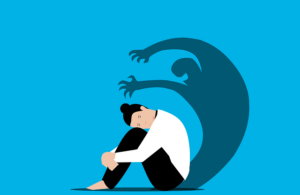News
Every tenth person in Denmark struggling with mental health issue
This article is more than 3 years old.
Health authority contends that the problem is a public health concern that needs to be prioritised immediately

Time to address the monster in the room (photo: Pixabay)
According to new figures from the OECD, every second person in Denmark will be encumbered by a psychological issue at some point in their lives. Furthermore, currently around 10 percent struggle with mental health issues on a daily basis.
The increasing problem has become a financial burden as well, costing society 110 billion kroner annually.
The figures have spurred the health authority into action and Sundhedsstyrelsen is seeking to give the area a significant lift over the next decade.
“We face a massive task that requires a long-term strategic lift over many years,” said the Sundhedsstyrelsen deputy head, Helene Probst.
“If we are to succeed, we need to move away from temporary projects and embrace long-term development with a clear and uniform framework.”
READ ALSO: New book tackles mental health in the workplace
Lower life expectancy
Sundhedsstyrelsen’s prioritisation report (here in Danish) has 37 recommendations relating to improving the situation over the next ten years.
Now it is up to the government to use the report as a tool to produce a new law proposal.
According to Sundhedsstyrelsen, mental health issues account for 25 percent of all illnesses in Denmark and 25 percent of children and young people aged 16-24 are struggling.
The average life expectancy for people with mental health illness is 15-20 years shorter than the norm.










































